Table of Contents
Can Dogs Eat Nuts? All You Need To Know!
Do you want to feed your dog your favorite nutty snack? Can dogs eat nuts? Nuts are high in protein and minerals, but they also cause severe allergies in humans. Is this also true for our dogs?
Should we handle nuts with caution when we have dogs? If you’re thinking about whether dogs can eat nuts, we’ll go over the basics of sharing this beloved food with your four-legged family member.
As usual, if you have concerns about your dog eating nuts, consult your veterinarian first.
Nuts are high in nutrients, so it’s natural for pet owners to want to share them with their canine companions. However, you should know a few things to ensure that your dog can enjoy them as a safe snack.
Can dogs eat nuts?

It all depends. Nuts are one of the healthiest snacks since they are high in protein and fiber and high in calories and fats. They frequently contain extra salt and flavorings, making them unsuitable for dog treats.
Remember that these crunchy treats come in various flavors, some of which can harm your pet. As a result, it’s important to understand which nuts are healthy for dogs to ingest and which can be harmful.
Most plain, unflavored nuts can be offered as a treat on occasion.
However, their high-fat content can cause illnesses such as pancreatitis and obesity if consumed in huge quantities. To prevent choking or stomach obstruction, always remove the outer shell.
Mold toxins (aflatoxins) found in nuts can cause liver damage. Always store nuts properly and feed them by the ‘Best Before’ date.
Fortunately, dogs do not appear to be in danger of the severe allergic reactions to nuts that some people experience.
Nuts That Your Dog Can Eat
Because most of us humans enjoy nuts and dogs constantly ask for them, it’s important to understand whether it’s safe to share these goodies with your fluffy buddy.
Although nuts have numerous health benefits when added to a human diet, the long-term impact of eating nuts on a dog’s health is not known. The popular belief is that nuts are too high in calories and fat for dogs and should not regularly be included in their diet.
However, most animal experts agree that giving your dog a few nuts on occasion will not hurt them. All you need to know is which nuts your dog can consume.
Peanuts
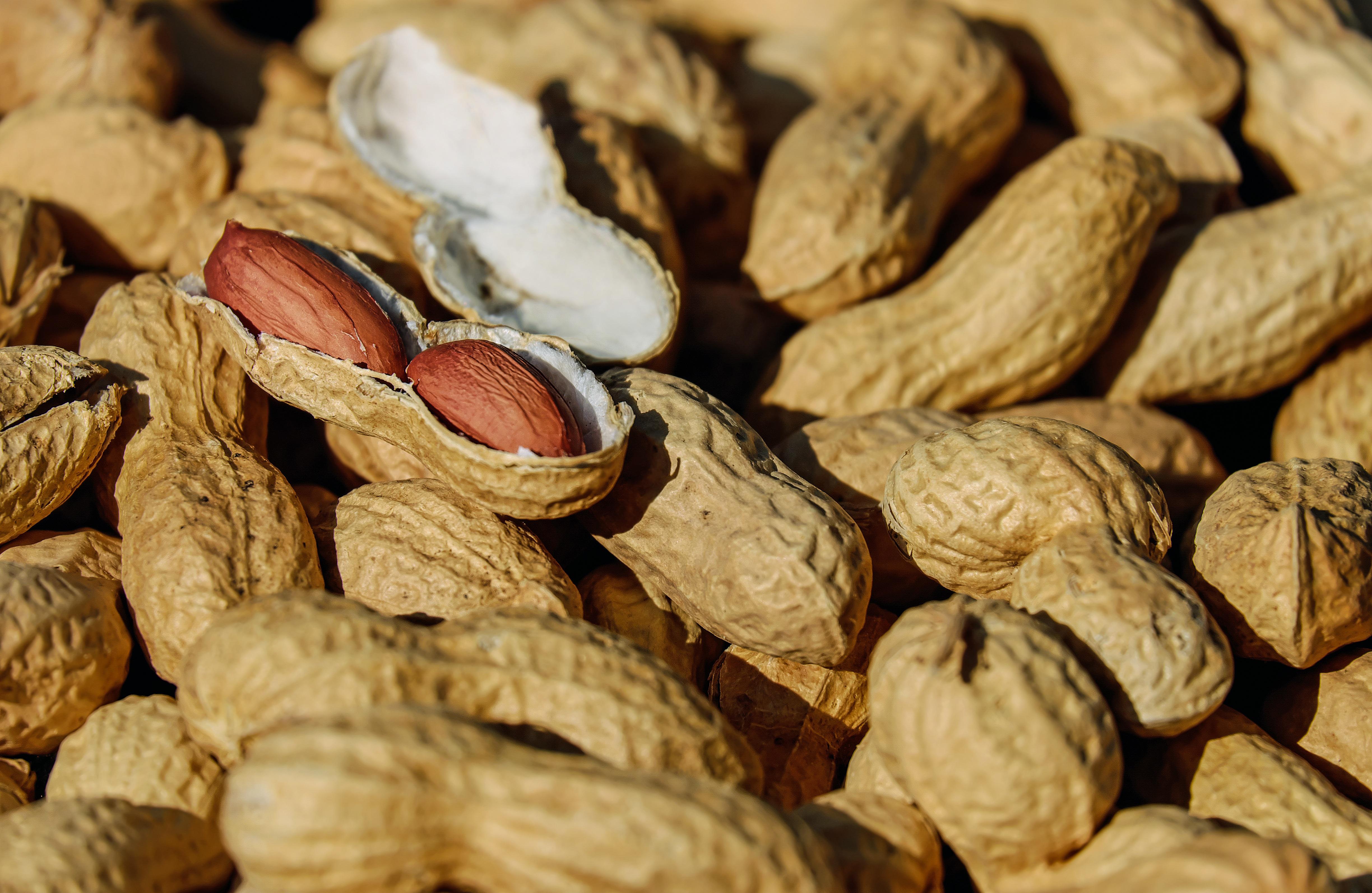
Although dogs can eat peanuts, they cannot be salted, coated, candied, or caramelized. Dogs cannot consume peanuts in their shells, but a few naked peanuts, roasted or uncooked, make a nutritious treat.
Peanuts are high in protein, which is important nutrition for dogs. But it isn’t all. Peanuts also have arginine, an amino acid that aids in creating nitric oxide, which aids in blood circulation. As a result, peanuts can help lower your dog’s risk of heart disease and high blood pressure.
While there are many advantages to feeding your dog peanuts, keep in mind that they are rich in fat, so keep peanut treats to a minimum. Peanuts can also trigger allergies in some dogs.
Chestnuts
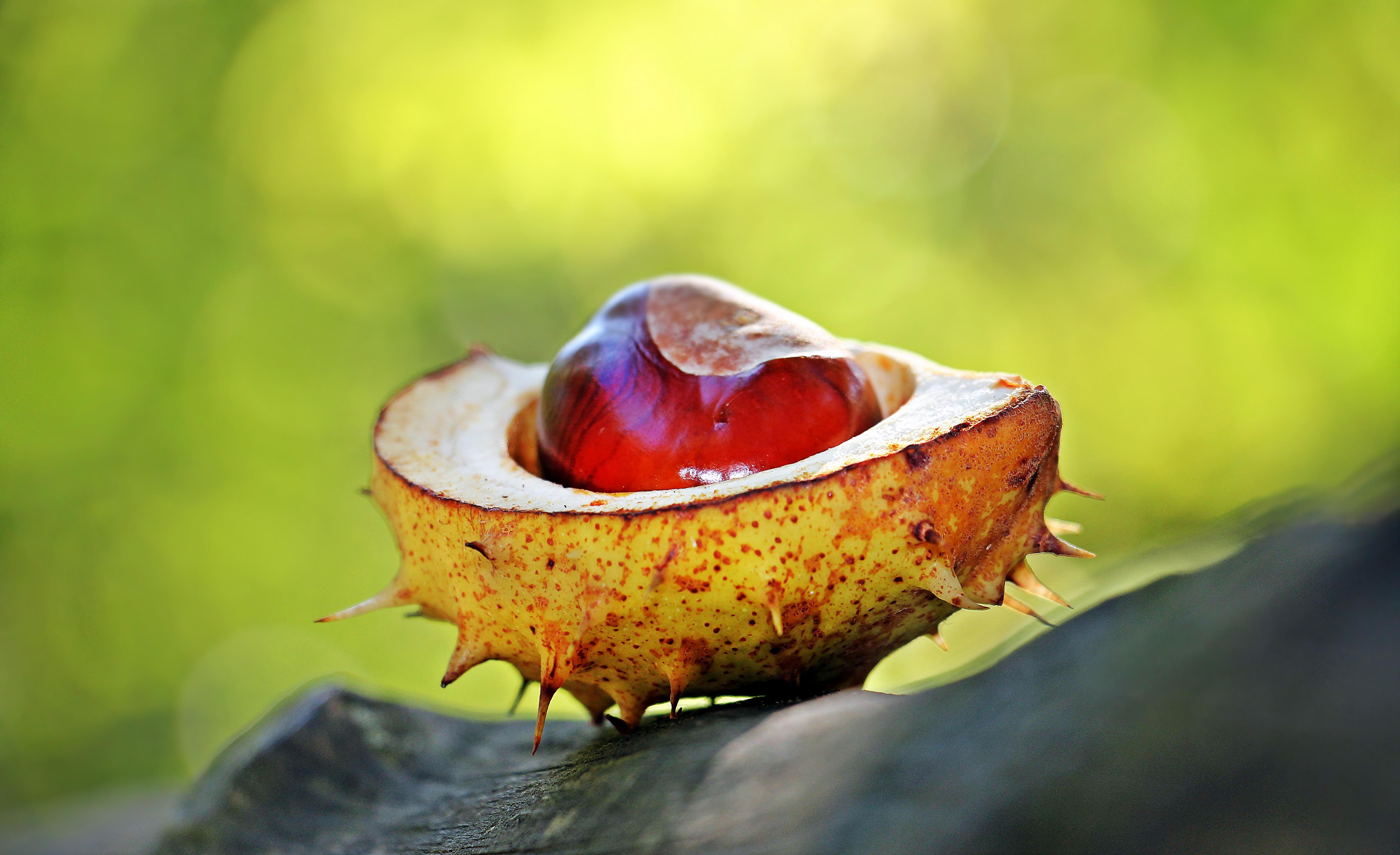
Chestnuts are high in vitamins C, B1, and B2 and potassium, iron, and copper.
However, like all nuts, these spherical, tasty bites are high in fat and carbs and can be rough on your dog’s stomach if consumed in excess.
Chestnuts should only be fed to dogs in limited amounts, even as a puree. Roasted chestnuts are not harmful to your pet. Chestnuts’ fiber content can help your dog prevent constipation. Also, if you buy them at the supermarket, make sure they are unseasoned and not salted or seasoned.
Nuts to Avoid: Which Types of Nuts Are Toxic to Dogs?
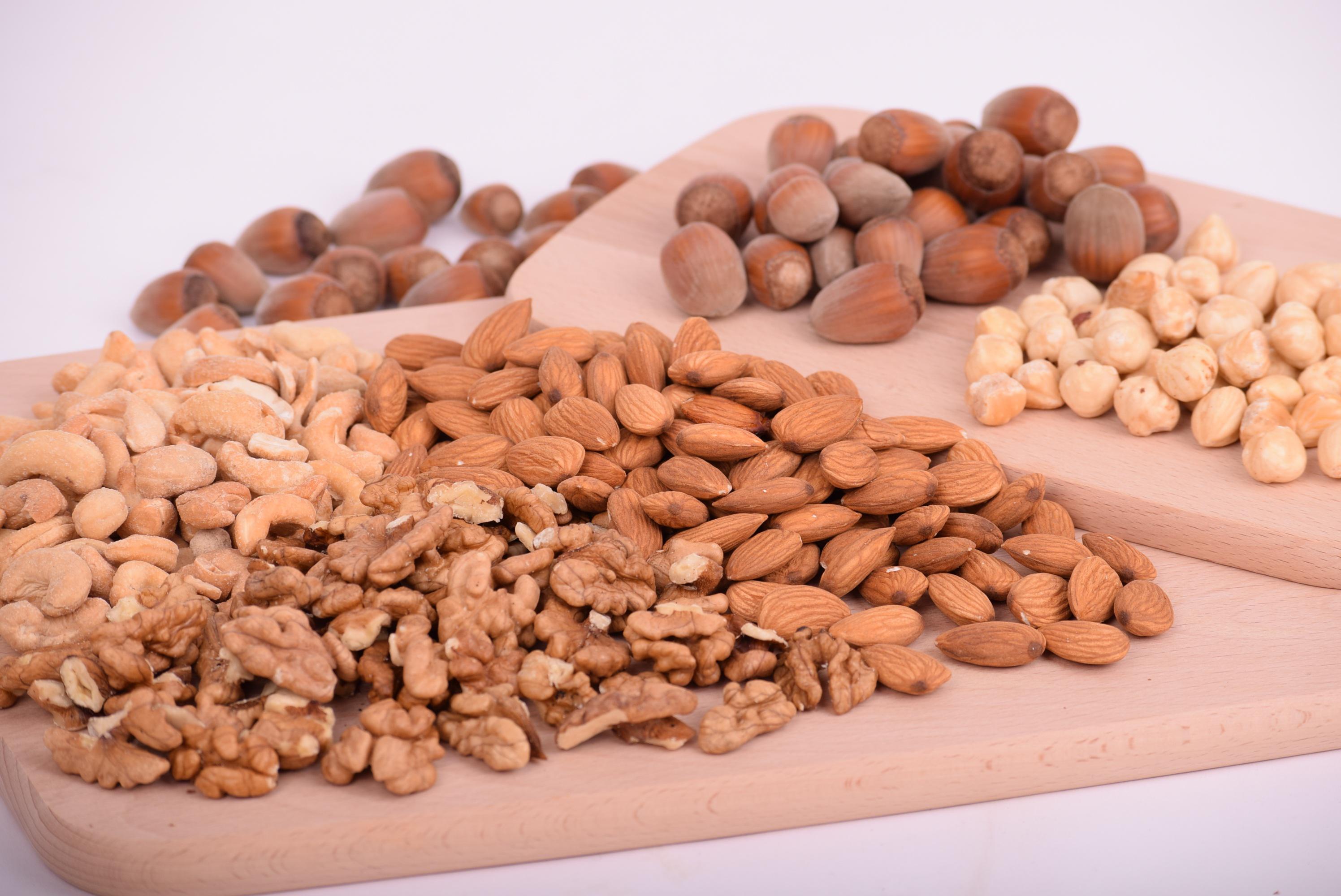
All nuts, in general, can be harmful to dogs if consumed in excess. Some of the nuts on the following list can be eaten by dogs, although they usually create more difficulty than they are worth. Even when given treats, others can be harmful to dogs or cause various health problems.
As with any other human food you’re considering giving your dog, it’s advisable to err on caution and avoid these nuts entirely.
Almonds
Almond nuts aren’t harmful to dogs so that they can eat them, but dogs often have trouble digesting them. Even unsalted almonds can cause your dog’s stomach upset or cause gastric intestinal distress in a more sensitive dog. You should never give your dog almonds that are salted, seasoned, sugar-coated, or covered in chocolate.
Also, they could cause choking. Almonds are small, but their shells are hard. This makes it hard for dogs to chew and swallow them. This can block their throats or digestive systems, killing them if they don’t get help right away.
Hazelnuts
First of all, in theory, we can say that dogs can eat hazelnuts. They are not dangerous for dogs, so giving them a couple of unsalted, unwrapped hazelnuts won’t hurt them.
Like almonds, hazelnuts are about the right size to cause choking or blockage of the intestines. Small dogs can choke on hazelnuts, and large-sized dogs tend to gulp them down without chewing, which can cause the nuts to get stuck in their intestines and cause many problems.
Cashews
One or two unsalted cashews won’t hurt a healthy dog. Cashews must be baked or roasted because they can have a poison similar to the one in poison ivy when they are raw. But even though cashews are technically safe for dogs to eat (if they are in the right form), they have a lot of potassium, making dogs with urinary problems sick.
Cashews are a good source of protein, but they also have a lot of calories and fat. Also, cashews are big nuts that can cause choking, even in big breeds. But this is especially true for small dogs. There’s also the chance of getting a clogged intestine.
Walnuts
Pets should not be fed walnuts. In addition to the risk of intestinal blockage and stomach irritation, walnuts can be poisonous to dogs due to the high possibility of mold infection. Moldy walnuts can contain fungus that produces mycotoxins, which can cause seizures and other serious neurological issues in your dog.
Dogs are especially vulnerable to black walnuts. The poisonous principle is unknown. However, it may be related to juglone, a chemical present in all three parts. The poison can cause weakening, paralysis, and even death. If your dog consumes black walnuts, you should immediately contact your veterinarian.
Try using an online Vet Chat to get tailored 24/7 help from experienced professionals if you need to give basic medical care before having a long journey to the vet.
Pistachios
Although these green nuts are popular among humans, they might be dangerous to dogs. They can transport Aspergillus mold, which creates aflatoxin and can harm your dog’s liver. Apart from the hazardous fungi hiding about, pistachios are also a choking threat and can obstruct your dog’s intestine if not shelled.
Pistachios’ high-fat content may potentially contribute to pancreatitis. If your dog does consume pistachios, keep an eye out for signs of gastrointestinal illness. Pistachios are also high in calories, which might lead to weight gain in dogs.
Pecans
A slice of pecan pie may be just what you need on a gloomy day, but your dog should avoid these delicious nuts! Moldy pecans, like pistachios, can contain aflatoxin, a chemical produced by the Aspergillus fungi that can cause liver damage in dogs. Pecans contain omega-6 fatty acids, which might cause inflammation in dogs.
Macadamia Nuts
According to the ASPCA National Animal Poison Center, macadamia nuts are toxic to dogs. Scientists have yet to determine what chemical in these nuts, like raisins, causes poisoning in canines, but the consequences can be serious. Macadamia nut consumption in dogs has been linked to leg weakness, vomiting, shivering, diarrhea, and fever.
Your dog may experience all or just a few of the symptoms of macadamia poisoning.
In a study, the number of macadamia nuts that dogs ate was estimated to be 11.7 g/kg BW. As a result, even one macadamia nut can be fatal to your dog. If you see your dog got their paws on these nuts or if you see any of the symptoms mentioned above, contact a veterinarian right away.
Pine Nuts
Even though pine nuts are not harmful to dogs, feeding them to your pet is not good. High in fat and phosphorus, Pine nuts can irritate your dog’s stomach even in tiny amounts. Suppose your dogs consume a high amount of pine nuts regularly. In that case, they may suffer pancreatitis or urinary tract issues.
Brazil Nuts
Brazil nuts are not dangerous to dogs, but they are also not recommended. Brazil nuts, dubbed one of the fattiest nuts available, can upset your dog’s stomach and cause various intestinal issues. Feeding brazil nuts can cause pancreatitis in dogs over time; therefore, it’s better to avoid feeding these fatty nuts to your dog.
Can dogs eat nuts safely?
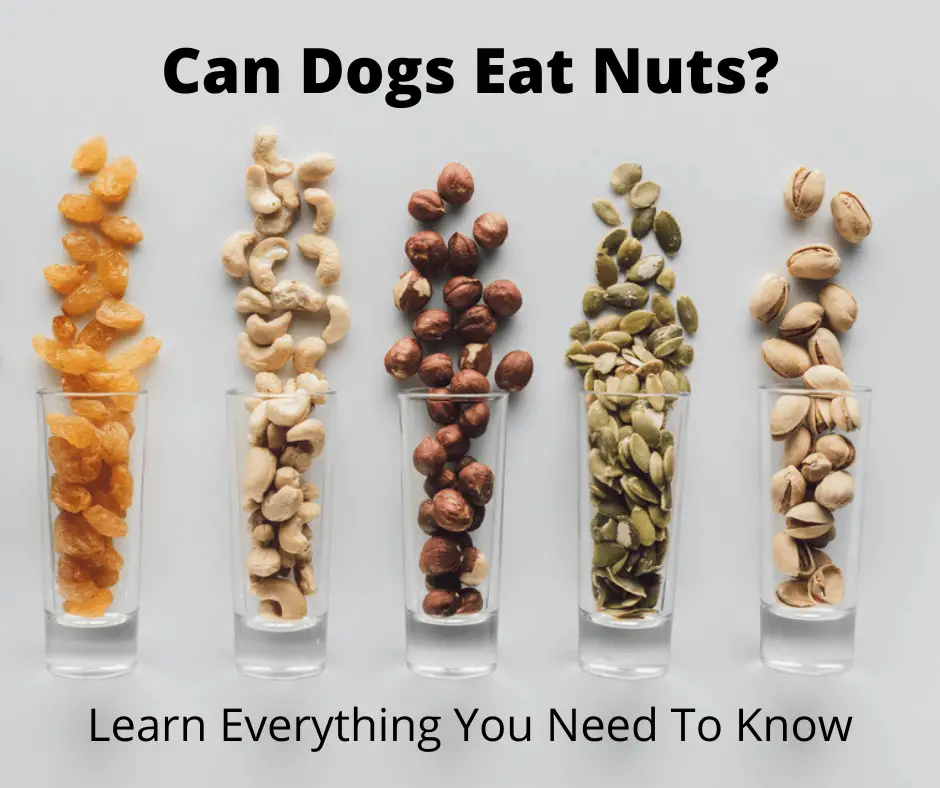
Even though some nuts can be small treats or won’t hurt your dog if it finds one under the couch and eats it, it’s best to stick to good treats for dogs. Why? Because the main reasons that make nuts bad for dogs are the same reasons that make us suffer.
Nuts are bad for your waistline because they are all high in fat and calories, “There are a lot of better treats with fewer calories and less risk.” Plus, most packaged nuts have a lot of sodium, and according to the Pet Poison Helpline, too much salt is bad for dogs.
About 10% of your pet’s daily food intake should come from treats. So, if you want to give your dog some human foods now and then, choose ones that are high in fiber and phytonutrients, like:
Fruits
- Apple slices
- Pear slices
- Strawberries
- Blueberries
- Cranberries
- Raspberries
- Pitted cherries
- Melons, such as watermelon and cantaloupe
Vegetables
- Carrots
- Broccoli
- Celery
- Pumpkin
- Cut up cucumber
- Cooked zucchini
- Sweet potatoes
- Green beans
How to feed nuts to your dog
Now that you know that dogs can eat nuts, you may be wondering what’s the best way to give them. Even though there are many tasty and healthy dog treats out there, if your dog can’t resist a nutty treat, here are some things to watch out for:
- Portion control is important: It is easy for a dog to consume too much of them due to nuts’ high caloric and fat content. It is essential to keep nut packaging out of the dog’s reach and limit the canine’s access to nuts to no more than one or two at a time and on rare occasions. To avoid severe disorders such as pancreatitis and obesity caused by high-fat intake, modifications are required.
- Nuts can cause choking: Nuts come in various shapes, so keep this in mind while feeding them to your dog. Pecans and walnuts should be in smaller pieces to ensure that your dog can chew them safely.
- Always prefer unsalted versions: No matter how tasty humans think salted peanuts are, your dog will appreciate the basic, unflavored variety. Foods with a high salt content are bad for a dog’s digestive system, so go for the unsalted variety when giving them their favorite nutty treat.
- Be careful about ingredients: These foods may be flavorful, coated, caramelized, or offered as nut butter for people, but they can be dangerous to dogs. Xylitol is a sugar substitute that is particularly harmful to dogs and is used in sweet foods like peanut butter. The onion and garlic powders used to flavor nuts are toxic to dogs. Remember that dogs and chocolate do not mix, so avoid giving your dog chocolate-covered nuts. Before offering any nut-based treats, always read the product label.
- Remove the shells: Another important note is to check for shells or shell fragments before giving your dog a nuts treat. These can cause intestinal blockage as well as choking dangers. As a result, it’s a good idea to keep the holiday nut dish out of your dog’s reach!
- Moldy nuts are extremely toxic: Do you remember those aflatoxins? These are dangerous poisons found on moldy nuts and cause liver failure and convulsions. Check the freshness of the almonds, pecans, and other nuts before allowing your dog to eat them.
Final words: Can dogs eat nuts?
Overall, nuts are not the ideal choice for your four-legged best friend. Although not all nuts are harmful to dogs, excess intake can lead to canine obesity and serious medical conditions such as pancreatitis. It is safer to give your dog special dog treats with fewer calories and lipids than nuts.
Nuts, which are high in fat and often high in sodium and phosphorus, should not be a normal part of your dog’s diet. Nuts can have pepper, onion, garlic coatings, cocoa, sugar, chocolate, or too much salt. Salt is renowned among dogs with heart or kidney problems for affecting or relapsing existing health concerns and treating urinary stones and high blood pressure.
There is also a high possibility of fungus contamination, damaging your dog’s health. So, if your dogs manage to sneak a nut or two from your cache, keep an eye on them. Contact a veterinarian if the nuts your dog ate were on the list of nuts you should not feed to your dog to avoid any potential health concerns.
FAQs
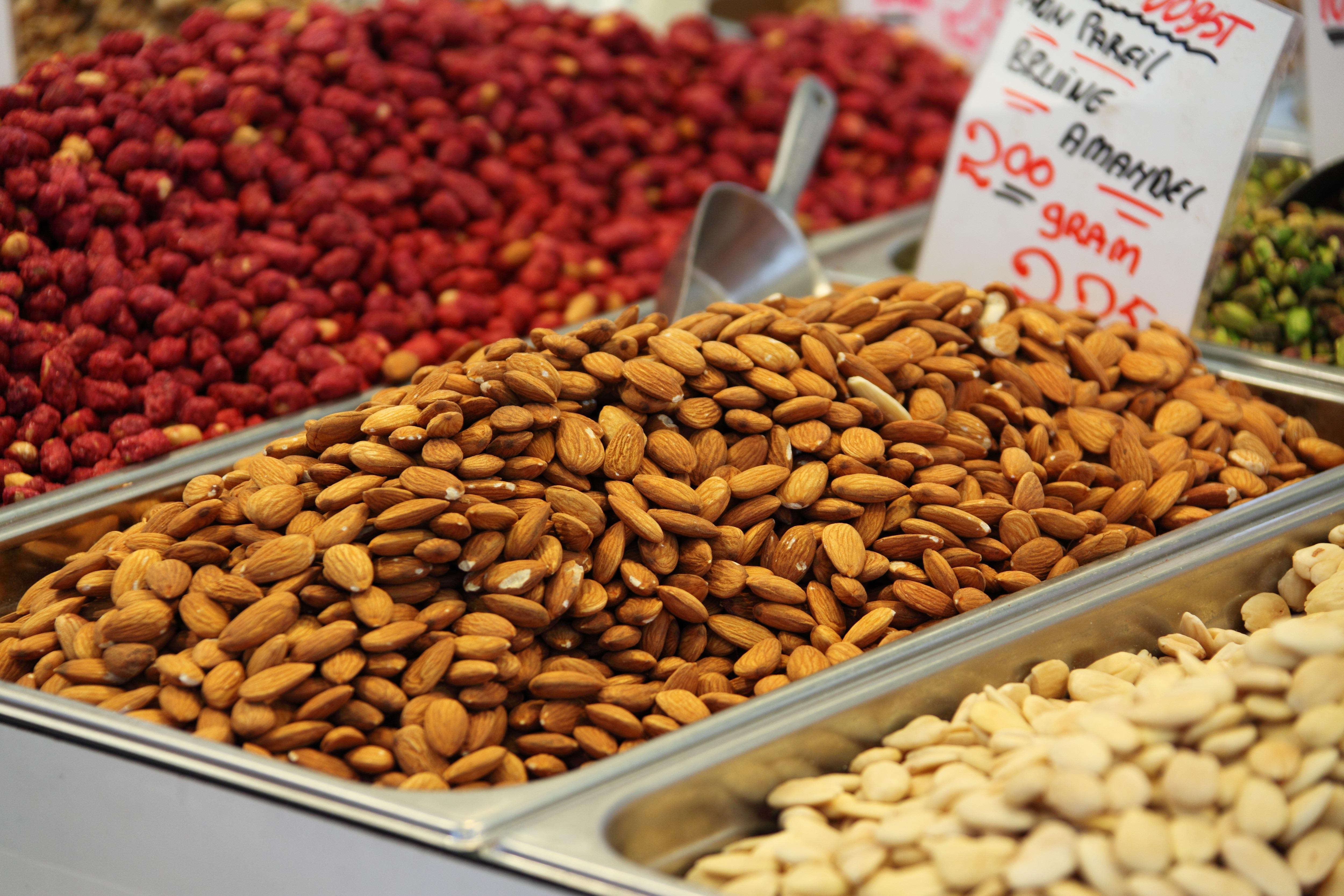
1. What nuts are poisonous to dogs?
Nuts that are poisonous to pets
- Black walnuts – Very toxic to dogs.
- Macadamia nuts – Very toxic to dogs.
- Raw Cashews – They must be avoided for dogs and are toxic for cats.
- Pistachios – Must be avoided for dogs and cats.
- Old and moldy walnuts – Highly toxic to dogs and cats.
2. What happens if my dog eats a nut?
Although not all nuts are harmful to dogs, excessive ingestion can lead to canine obesity and serious health problems such as pancreatitis. It is preferable to treat your dog with special treats with fewer calories and lipids than nuts.
3. Are all nuts poisonous to dogs?
Many of the nuts in our cabinets are technically acceptable for dogs. Still, a few varieties of nuts are harmful to dogs, and any moldy nuts are toxic to dogs.
4. Is peanut butter good for dogs?
Peanut butter is normally safe for dogs to eat. When consumed in moderation, it can be a healthy source of fats, protein, vitamins B and E, and niacin.
5. What to do if my dog ate too many almonds?
If your dog eats almonds, here’s what to do. Don’t worry if your dog eats one or two almonds. Instead, keep a close eye on him for intestinal pain or blockage signs. If your dog eats more than a few almonds, you should call your vet or the nearest emergency vet for expert advice.

